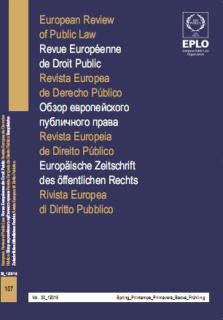
Some Considerations on the Freedom of Expression
in respect to the Case-law
of the European Court of Human Rights (ECtHR) Interpretation
Professor, University of Tirana, Albania
Freedom of expression constitutes one of the essential pillars of a democratic society and its progress, in line with the rule of law, transparency and good governance principles, as well as for each individual’s self-fulfillment. One of the most elaborated treaties for the protection of this fundamental freedom is the European Convention on Human Rights. The well-established case-law developed by the European Court of Human Rights has also contributed to a better understanding and implementation of this freedom in its diversity. Under Article 10 of this Convention, freedom of expression has a wide scope of protection and is a complex one, as it encompasses not only the right to receive but also the right to impart information, always considering the balancing interest in question. An essential part of it is the media freedom that is at the center of this paper. The idea of a free, independent, plural, and diversified media has become the ideal to be achieved in order to fully ensure the right to seek, receive and impart information. Also, it is not an absolute right, as this freedom is subject to certain exhaustive restrictions/exceptions under Article 10/2 of the European Convention on Human Rights and thus, the Contracting States enjoy a certain margin of appreciation in assessing whether and to what extent an interference with the freedom of expression protected by this provision is justified (if it is in accordance with the law, pursues one or more of the legitimate aims and is necessary in a democratic society). The focus of this paper under Article 10 of the Convention is media freedom and protection of journalistic sources, hate speech, and free political debate as well as the necessity to balance this freedom with other fundamental rights and freedoms in light of the European Court of Human Rights case-law. In cases where the freedom of expression needed to be fairly balanced with the protection of the reputation, privacy or rights of others, the Court has stated, as a matter of principle, that Article 10 and Article 8 deserve “equal respect”.
La liberté d’expression est l’un des piliers essentiels d’une société démocratique et de ses progrès conformément aux principes d’Etat de droit, de transparence et de bonne gouvernance, ainsi que pour l’épanouissement de chaque individu. L’un des instruments les plus élaborés pour la protection de cette liberté fondamentale est la Convention européenne des droits de l’homme. La jurisprudence constante développée par la Cour européenne des droits de l’homme a également contribué à faire mieux comprendre et exercer cette liberté dans sa diversité. Conformément à l’article 10 de cette Convention, la liberté d’expression a un large champ de protection et est complexe, car elle englobe non seulement le droit de recevoir mais aussi celui de diffuser l’information, compte tenu toujours de l’équilibre des intérêts en cause. Une part essentielle en est la liberté des médias, qui est au centre de cet article. L’idée de médias libres, indépendants, pluriels et diversifiés est devenue l’idéal à atteindre afin de réaliser pleinement le droit de chercher, de recevoir et de diffuser des informations. Par ailleurs, ce n’est pas un droit absolu, car cette liberté est sujette à des restrictions/exceptions exhaustives, conformément à l’article 10, paragraphe 2, de la Convention européenne des droits de l’homme, si bien que les Etats parties contractantes jouissent d’une certaine marge d’appréciation pour déterminer si et dans quelle étendue une ingérence dans la liberté d’expression protégée par cette disposition est justifiée (si elle est dans le respect du droit, elle poursuit un ou plusieurs buts légitimes et est nécessaire dans une société démocratique). La présente étude se concentre, sous l’angle de l’article 10 de la Convention, sur la liberté des médias et la protection des sources journalistiques, les discours de haine et le débat politique libre ainsi que sur la nécessité de pondérer cette liberté par d’autres droits et libertés fondamentaux, selon l’avis exprimé par la Cour européenne des droits de l’homme dans sa jurisprudence. Dans les affaires où la liberté d’expression a eu besoin d’être équilibrée avec la protection de la réputation, de la vie privée ou des droits d’autrui, la Cour a déclaré en principe que l’article 10 et l’article 8 méritaient un “respect égal”.





















